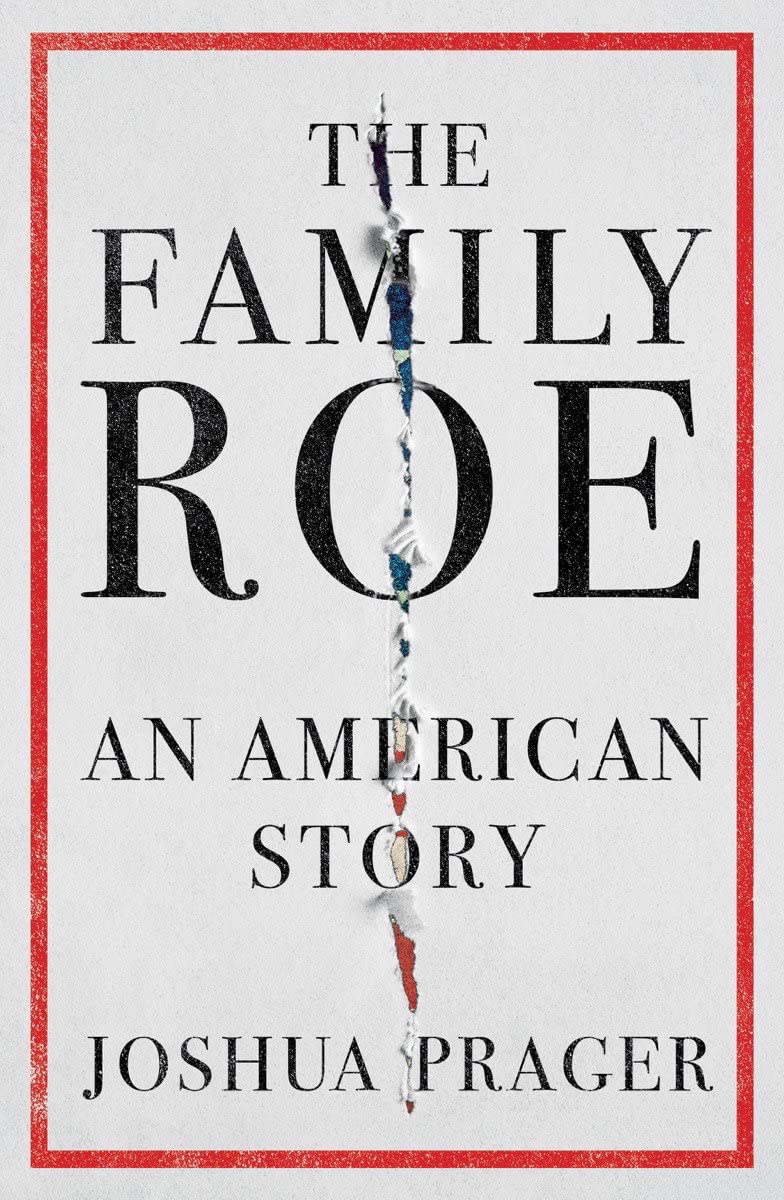The Family Roe: An American Story by Joshua Prager (W.W. Norton)
“There is nothing covered up that will not be revealed, and hidden that will not be known,” this Biblical promise often finds contemporary fulfillment in the writings of Joshua Prager, who deftly excavates the secret things of our day, the human relationships they forge—and their national profundity. In The Echoing Green: The Untold Story of Bobby Thomson, Ralph Branca and the Shot Heard Round the World—the Washington Post Best Book of the Year—Prager revealed that the Giants used a telescope to steal rival catchers’ signs from their center field offices at the Polo Grounds. As a senior writer for the Wall Street Journal, Prager also discovered the unknown suicides of Raoul Wallenberg’s parents, the reclusive boy who inherited the royalties to the children’s classic Goodnight Moon, and the identity of the only anonymous recipient of a Pulitzer Prize for photography— anonymous because his iconic image of executed men could have cost Jahangir Razmi his life under the Ayatollah’s regime.
Revealed secrets, iconic and obscure, are the special domain of Prager, who has been a Nieman fellow at Harvard and a Fulbright Distinguished Chair at Hebrew University, but his work always delves deeper, into the gravitational pull these revelations exert on relationships and on American society. The Family Roe is not only painstakingly reported, but it also seems a culmination of this profound empathy.
We know many of the facts of Roe v. Wade: The year of its passage 745,000 women in 34 states obtained legal abortions. We know of its cultural and political polarity. We’re even familiar with its semantic intricacies in which the use of terms like ‘fetus’ or like ‘pro-choice’ becomes a litmus test. But until The Family Roe, we knew next to nothing of the people who made the law a reality. As Mindy Jane Roseman of The Washington Post writes, Prager “transform[s] Roe from an abstract legal doctrine into an epic family saga.” Tolstoy alludes to the common felicity of some families, but as Prager introduces us to the unique travails of the often-changeable people in Norma McCorvey’s, he is both incisive and sensitive.
Prager also resurrects and fleshes out important figures, all but hidden, on both sides of the abortion debate including Roe v. Wade’s brilliant but marginalized legal architect Linda Coffee, and late Dr. Mildred Jefferson, the first black woman graduate of Harvard Medical School and president of the National Right to Life Committee.
Refreshingly, Prager’s account avoids bias a rare achievement when the high stakes and acerbic nature of the conflicts over abortion threaten our ability to relinquish judgment and to practice civility while discussing it. Prager tells us he is pro-choice, but the refusal to ‘take sides’ is an astonishing feat given the current climate as Roe v. Wade suffers legal assaults may prove to be its death throes.



